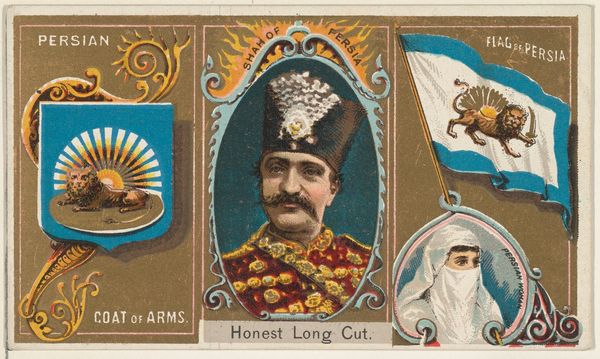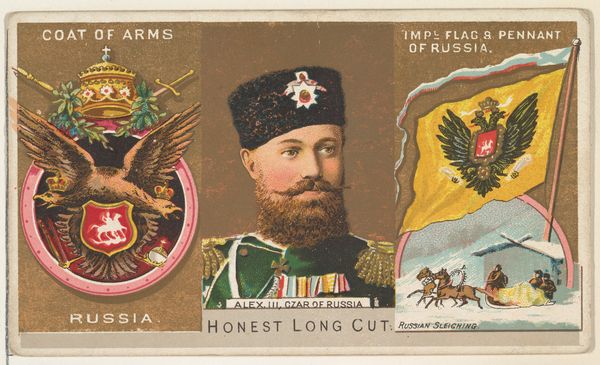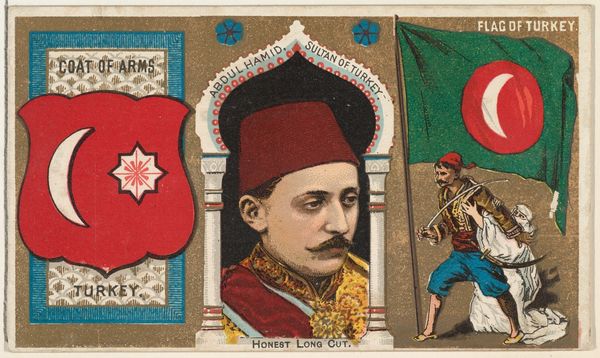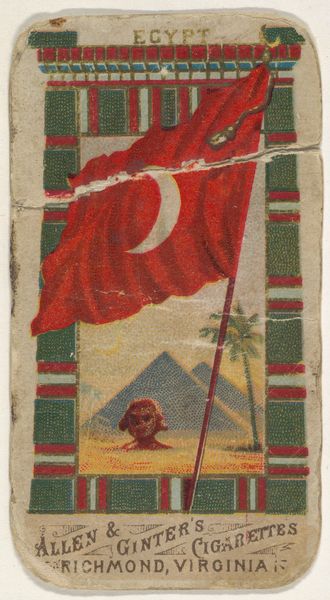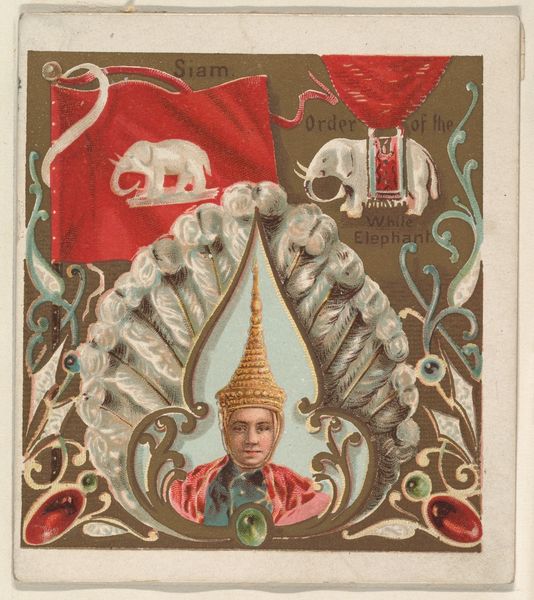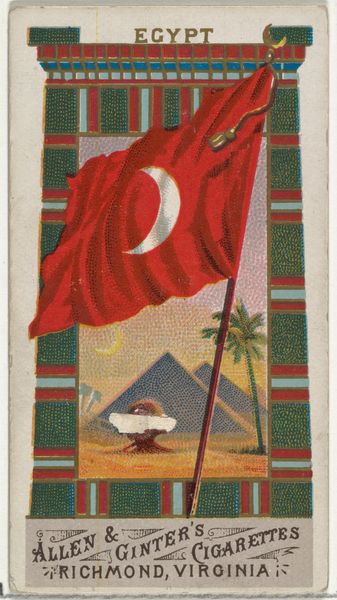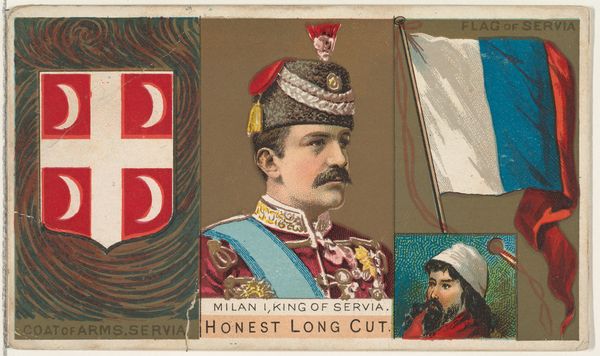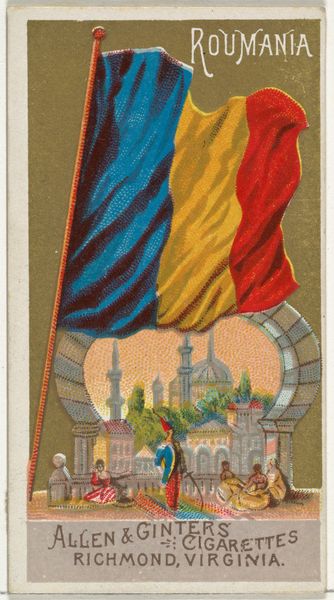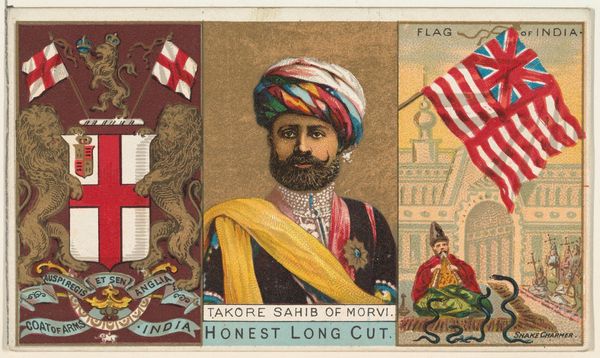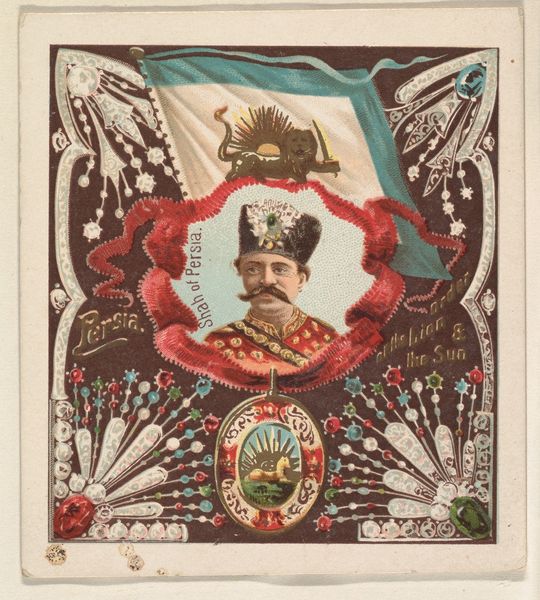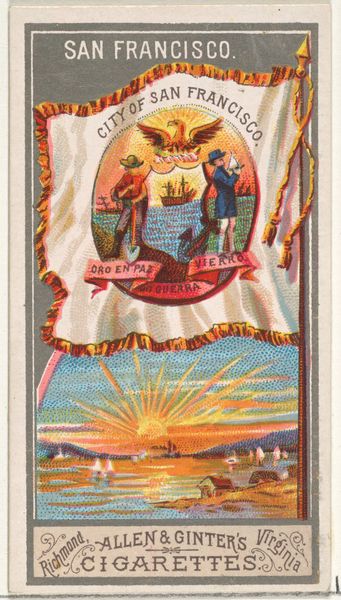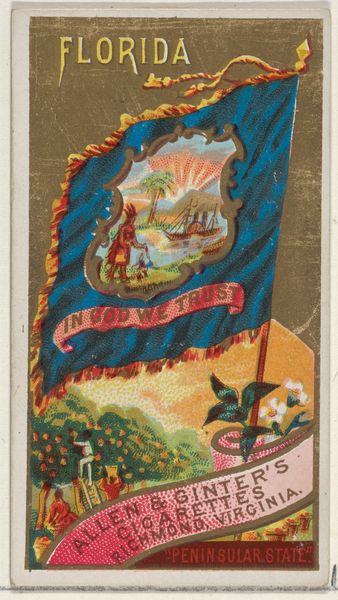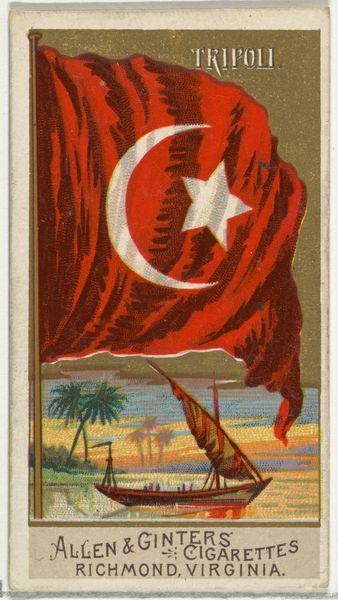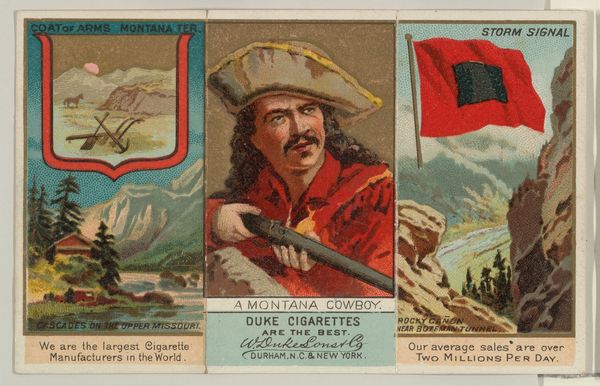
The Sphinx, Egypt, from the Rulers, Flags, and Coats of Arms series (N126-1) issued by W. Duke, Sons & Co. 1888
0:00
0:00
Dimensions: Sheet: 2 1/2 × 4 5/16 in. (6.4 × 11 cm)
Copyright: Public Domain
This small lithograph was printed around 1900 by W. Duke, Sons & Co. as a cigarette card, a paper collectable inserted to stiffen packaging and entice consumers. The card features the Sphinx and other patriotic symbols. The printing process would have involved making a series of lithographic stones, one for each color, and layering these in precise registration. This was skilled work, but in the context of mass-production, it’s geared towards speed and uniformity. Consider how the bold lines and flat colors reflect the industrial process. It's quite different than a unique work of art. The text "Honest Long Cut" reveals the card's true purpose: advertising. While seemingly benign, these cards promoted tobacco consumption and linked it to notions of national identity, history, and even art. This raises important questions about labor, consumerism, and how images circulate within a capitalist system. It reminds us that even seemingly small, mass-produced objects can carry significant cultural weight.
Comments
No comments
Be the first to comment and join the conversation on the ultimate creative platform.
